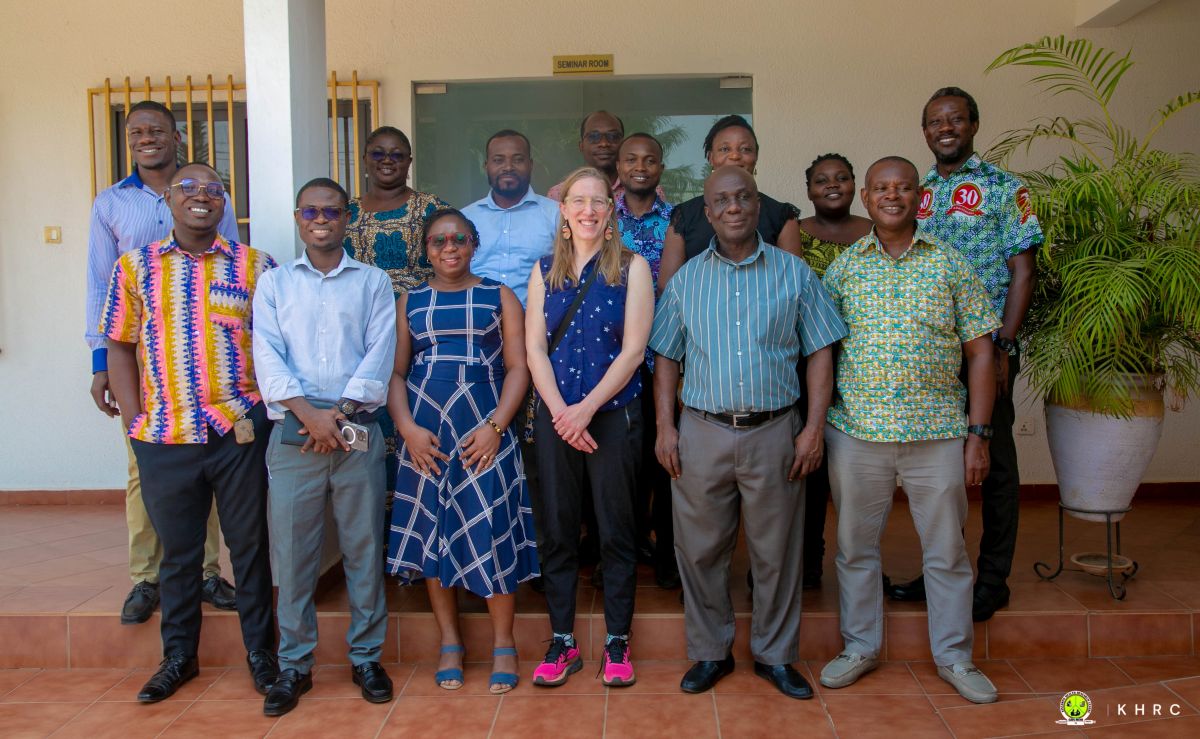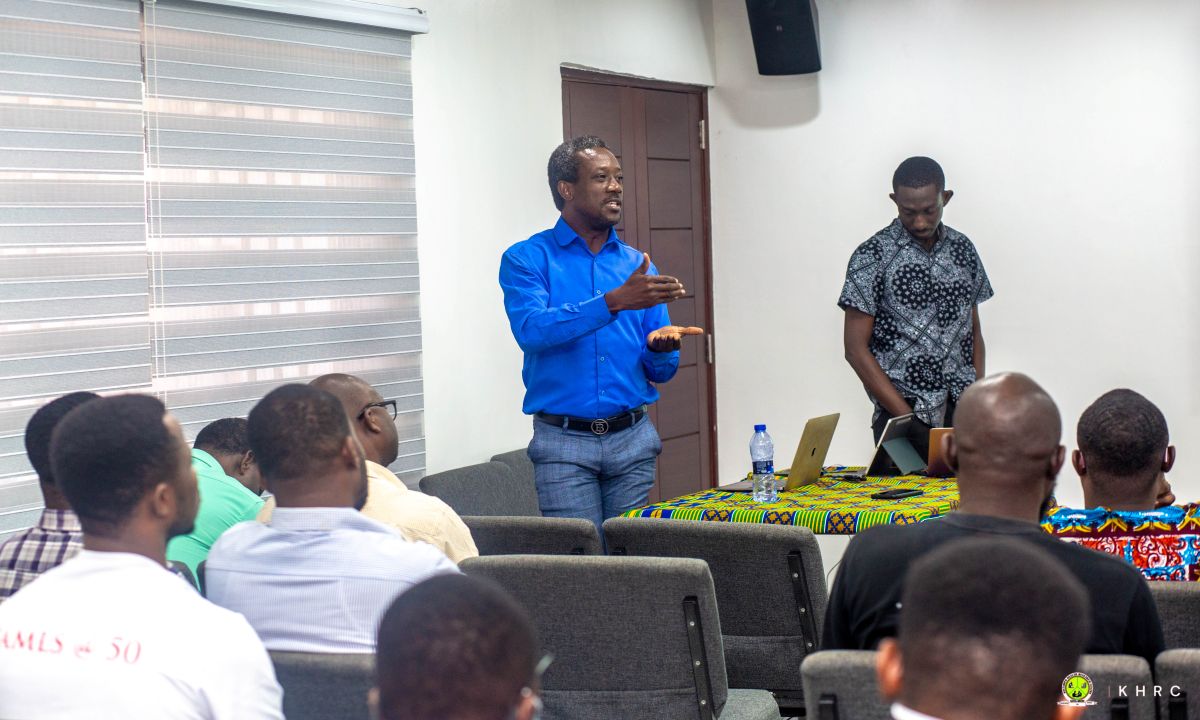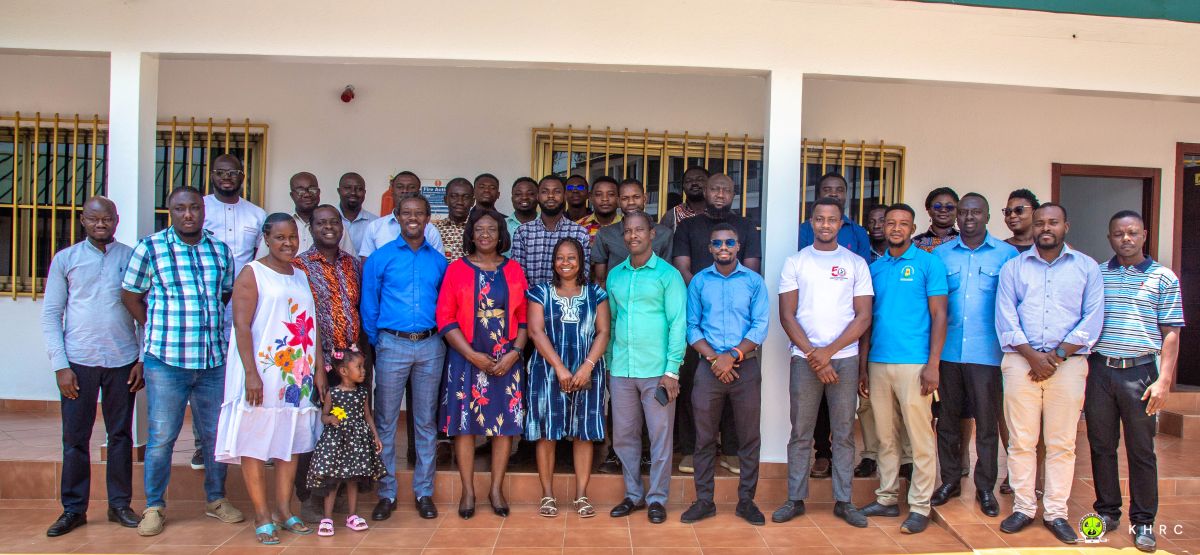KHRC Commences New Clinical Study on Malaria Prevention for School-Aged Children
April 07, 2025 | News Feed | Reading time: 4 min
The Kintampo Health Research Centre (KHRC), in collaboration with the University of Maryland and the Research and Development Division of the Ghana Health Service, has begun a new malaria study called “Impact of Early Childhood Malaria Prevention on Malaria Risk at School Entry (ERASE)”. The study is investigating how early interventions like seasonal malaria chemoprevention (SMC) and the use of malaria vaccine affect the risk of malaria when children start school. This five-year study being conducted in the Kintampo North and South districts of the Bono East Region in Ghana, has started recruiting participants.
The study aims to understand how interventions given early in a child’s life can affect malaria risk as the children grow older. Despite progress in reducing malaria with treatments like insecticide-treated nets and vaccines, school-aged children are still at risk since they no longer receive these interventions after a certain age.
As part of preparatory activities, KHRC trained 24 clinicians and laboratory staff from 12 selected health facilities within the study area, to support the study. The training, held on Thursday, March 27, 2025, covered key topics including the study’s overview, the types of samples to collect from participants, and how to document diagnoses clearly for future reference. These clinicians and laboratory staff will support the study by identifying study participants that show up at the facility and help to perform the study’s activities while at the clinic.
Prior to the training, Prof. Andrea Buchwald, a principal investigator from the University of Maryland, USA, visited KHRC to discuss how the study would be carried out and to check the Centre’s readiness. Discussions during her visit also centered on the next steps for the study’s implementation.
About the Study
The ERASE study, which is funded by the US National Institutes of Health (NIH) will recruit about 1,950 children and follow them for two years. The children will be enrolled from three groups based on whether they received SMC, the RTS,S vaccine, or neither. The study will monitor their health through regular checks, including blood, stool, and urine samples to detect malaria and other health issues. The study will also collect data on factors like nutrition and socioeconomic status, which may affect malaria risk.
This research is important for understanding how early interventions protect children as they grow older. The results will also help improve future malaria prevention programmes, especially for children who are at a higher risk after receiving early treatment. It will run until May 2029.
LEARN MORE ABOUT ERASE
ERASE PROJECT

.jpg)
.jpg)


